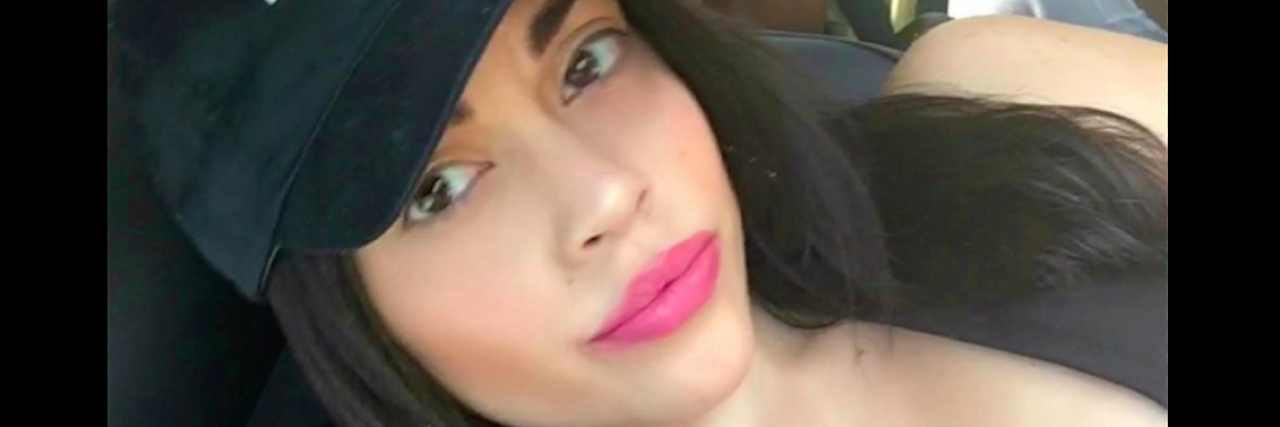Why I Consider My Borderline Personality Disorder Diagnosis a Blessing
Editor's Note
If you’ve experienced sexual abuse or assault, the following post could be potentially triggering. You can contact The National Sexual Assault Telephone Hotline at 1-800-656-4673.
The corner store owner looked at me and immediately said the guys I was with were “no good.” I already knew that. Actually, I wanted these “no good” guys to buy alcohol from his store so I could become more intoxicated than I already was. I was underage and in a notoriously high-crime area with men I knew to be criminals. Eventually, I found myself alone with one of them in an unlit bathroom in someone’s house. He was not drunk. I was a teenager and this was my first experience with sex. Retrospectively, I understand I was not cognizant enough to consent nor did I feel safe enough to have said “no.”
I compartmentalized my feelings like messy clothes in an overstuffed suitcase ready to burst open. It was easier to drink and party than to deal with the contents of my emotional baggage. In fact, I kept drinking after this traumatic experience, several rehabilitation programs and witnessing my brother slowly kill himself with drugs. I kept drinking until I became fed up with myself; I was tired of risking my life and safety, compromising my values and running away from pain I would never outrun.
I hid my drinking and traumas behind academic achievement. My parents sacrificed everything to provide my brother and I with opportunities they never had; my father fled Nicaragua as a wartime refugee and my Ecuadorean mother was abducted by a family member and brought to America to escape domestic violence. I remember receiving free groceries from our local church, riding around in cars on the verge of breaking down and wearing thrift store couture. I refused to treat my education as anything less than a job because I needed to validate my parents’ sacrifices. I had to make the discrimination and suffering they experienced worth it. From elementary school to law school, I was a conscientious student who performed exceptionally well. Ultimately, I convinced my parents and myself that a high GPA meant I was happy, safe and healthy.
My adolescence and young adulthood was a mix of accolades and anguish. Eventually, I received a diagnosis that changed my life: I was living with borderline personality disorder (BPD). This was not the first nor the last mental health diagnosis I received. I felt like I was collecting more “letters” than the frat brothers I dated. This highly stigmatized diagnosis, however, was challenging to accept. I had been called “a chola,” and criticized for being a stereotypical “passionate” Latina for years. Were all of those people right? Was I really a walking “crazy Latina” meme?
A BPD diagnosis requires five out of these nine symptoms: fear of abandonment, unstable relationships, a shifting self-image, impulsive and self-destructive behaviors, self-harm or suicidal behaviors, extreme emotional mood swings, chronic feelings of emptiness and feeling suspicious or out of touch with reality. I more than fit the bill of a diagnosis.
It was not a coincidence that my BPD diagnosis came after I liberated myself from unhealthy relationships: alcohol, an eating disorder and toxic people. Essentially, I freed up my mind, time and energy to focus on the most important relationship: the relationship with myself. I still needed to stop being under the influence of childhood pain. Thankfully, sobriety and therapy facilitated my introspection and emotional growth. For instance, I realized my violent interactions with men were trauma reenactments of abuse from my adolescence. This realization allowed me to curb a dangerous behavior that likely saved my life.
I stopped my destructive relationship with alcohol many years ago. Ever since, I traded vodka for dialectical behavioral therapy (DBT), binge drinking for exercise and fighting for creative writing. My sobriety was a catalyst to healing because my judgment, body and spirit were no longer corrupted by poison. Finally, I stopped searching for a message in a bottle and accepted that self-medicating is a losing game. In order to heal, I had to feel.
For me, there is no curiosity, temptation or allure when it comes to drugs. I became desensitized to drugs years ago. I have been around heroin addicts in rehab, drug dealers in the hood, inebriated celebrities in exclusive parties and cleaned up my own brother’s stashes. So taking an oath of sobriety at age 20, when so many of my peers were at the peak of their drinking, was long overdue. My decision to become sober was a life-saving one. When you become at peace with who you are and who you were, you quench that insatiable thirst to escape and are content with a water on the rocks. The truth is: therapy is hard work, but life is even harder. My sobriety is my self-care, my resistance and my peace.
Photo courtesy of the author

